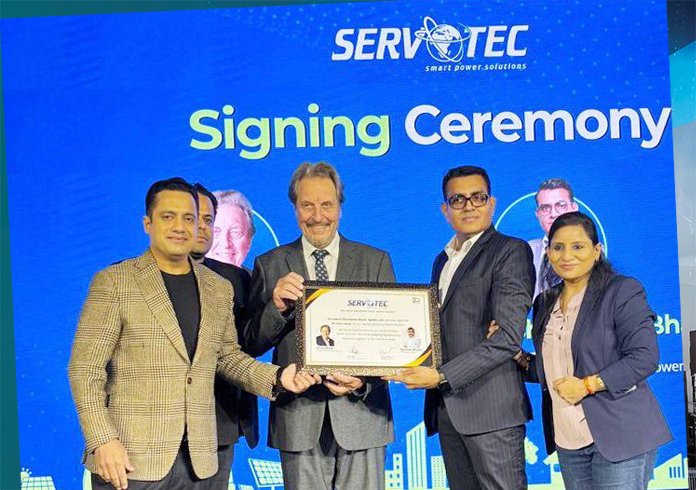Errol Musk, a seasoned electromechanical engineer, entrepreneur, and the father of tech billionaire Elon Musk, arrived in India on Sunday for a five-day strategic visit. His trip comes as he joins the Global Advisory Board of Servotech Power Systems, one of India’s leading manufacturers of solar energy and electric vehicle (EV) charging solutions.
While the world watched India’s green tech space gain a powerful endorsement, this moment bears critical importance for Africa’s clean energy future—particularly in solar integration, EV charging infrastructure, and the broader energy transition strategy.
A Strategic Boost to Green Innovation
Errol Musk’s involvement in Servotech signifies more than just a high-profile appointment. It sends a powerful message to emerging markets: local clean energy manufacturers can lead the global green shift toward sustainable development and climate resilience.
Servotech’s growth model—scalable, cost-effective, and aligned with government green policies—has positioned India as a rising hub in the clean tech export economy. For Africa, where energy poverty and infrastructure gaps still challenge progress, such a model is highly replicable and essential for accelerating widespread renewable energy adoption.
The India-Africa Parallel: Lessons in Localization
India’s experience demonstrates how strategic public-private cooperation and localized manufacturing can yield massive progress in EV and solar adoption. This trajectory offers a roadmap for African nations navigating their own transitions:
- Decentralized solar power for off-grid communities
- EV charging stations integrated with existing road networks
Policy incentives for domestic green tech startups
With African nations such as Kenya, Ghana, Nigeria, and South Africa pushing national EV policies, learning from India’s execution playbook becomes more essential than ever.
EV Infrastructure: The Missing Link in Africa
The African continent has seen growing interest in EVs, but a lack of charging infrastructure remains a major barrier. Servotech’s modular, solar-powered charging units could fill this gap—especially in remote or underserved areas where traditional grid access is limited.
By bringing Errol Musk on board, Servotech strengthens its global brand and innovation credentials. Africa’s public and private sectors can now explore partnerships, licensing agreements, or even local assembly ventures to scale EV infrastructure continent-wide.
Bridging Innovation Between India and Africa
Africa and India have longstanding ties in trade, development, and diplomacy. Errol Musk’s presence in India reinforces the idea that South-South collaboration can fast-track clean technology deployment.
Africa should capitalize on this moment by:
- Hosting joint green tech summits with Indian counterparts
- Exploring bilateral financing models for solar-EV integration
- Establishing knowledge exchange hubs for engineers and policymakers
These steps would create a platform for context-specific innovation, tailored to Africa’s unique climate, economic, and social needs.
Errol Musk’s African Roots
Born and raised in South Africa, Errol Musk’s renewed involvement in global energy dialogue holds symbolic and strategic significance for the continent. His presence in the green innovation space is a timely reminder that Africa’s talent and legacy can—and should—contribute to its sustainable future.
His son, Elon Musk, is already a global leader in electric mobility through Tesla. Now, with Errol joining the effort from a different angle, the Musk legacy could inspire deeper involvement in Africa’s green industrialization journey.
Africa Must Engage
Africa cannot afford to be a passive observer in the global clean energy revolution. As India rises with homegrown technologies and global advisory support, African stakeholders—ministries, municipalities, utility firms, and tech investors—must move swiftly to create ecosystems that embrace innovation and international collaboration.
Errol Musk’s visit should spark strategic dialogue in African capitals, starting with energy ministries and transport regulators. The time to act is now—before Africa is left behind in a market it should be helping to shape, leveraging local talent, innovation, and bold policy shifts for progress.
Share
